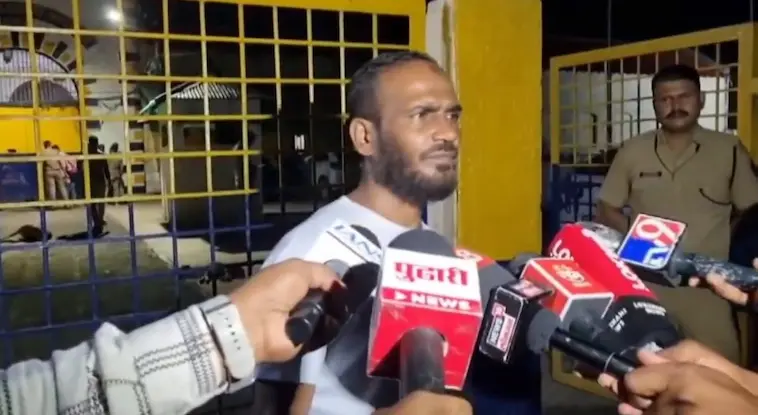
2006 Mumbai Train Blasts Case - The Supreme Court has issued notices to the acquitted individuals
The 2006 Mumbai Train Blasts: A Tragedy Etched in Memory
2006 Mumbai Train Blasts – On July 11, 2006, Mumbai’s suburban rail network was rocked by seven coordinated bomb blasts between 6:23 PM and 6:29 PM. The explosions targeted first-class compartments on the Western Line during peak hours, killing 189 people and injuring over 800 others.
The attack was one of the deadliest in India’s history, triggering nationwide outrage and a massive counter-terror investigation led by the Maharashtra Anti-Terrorism Squad (ATS).
The Legal Journey: From Conviction to Acquittal
In 2015, a special court under the Maharashtra Control of Organised Crime Act (MCOCA Act) convicted 12 individuals:
- 5 sentenced to death
- 7 sentenced to life imprisonment
The prosecution alleged links to banned outfits like SIMI and Lashkar-e-Taiba, citing confessions, forensic evidence, and witness testimonies.
However, on July 21, 2025, the Bombay High Court overturned these convictions, stating that the prosecution had “utterly failed” to prove guilt beyond reasonable doubt. The court cited:
- Inadmissibility of confessions due to alleged torture
- Procedural lapses in identification parades
- Weak forensic links and contradictory witness accounts
Supreme Court’s Intervention: What It Means
On July 24, 2025, the Supreme Court stayed the Bombay HC verdict, responding to an appeal filed by the Maharashtra government. The apex court clarified:
- The acquitted individuals will not be sent back to jail at this stage
- The High Court’s ruling shall not be treated as a judicial precedent in other MCOCA Act cases
This nuanced stay preserves the acquittal for now but blocks its influence on future trials, especially those involving organized crime and terrorism.
Maharashtra Government’s Stand
Solicitor General Tushar Mehta, representing the state, argued that:
- The High Court’s findings could undermine ongoing MCOCA trials
- There was an element of urgency due to the legal ramifications
- The state was not seeking re-imprisonment, but a review of the judgment’s broader impact
The appeal reflects the government’s concern over the precedent such an acquittal could set, especially in cases involving national security.
Legal Nuances: Precedent vs. Punishment
The Supreme Court’s decision to stay the precedential value of the High Court’s ruling is rare. It signals:
- A recognition of legal complexity in terror-related cases
- A desire to protect the integrity of MCOCA Act trials
- A balancing act between individual rights and collective justice
Legal experts note that while acquittals are final in most cases, the doctrine of precedent allows higher courts to control how judgments influence future rulings.
Public Reaction: Justice or Judicial Failure?
The acquittal sparked mixed reactions:
- Victims’ families expressed anguish, feeling justice was denied after nearly two decades
- Legal activists praised the High Court for upholding due process
- Political leaders called for accountability and reform in terror investigations
Social media platforms saw hashtags like #MumbaiTrainBlasts, #JusticeFor189, and #BombayHCVerdict trend, reflecting public engagement and emotional resonance.
Investigation Under Scrutiny
The Bombay High Court’s judgment raised serious questions about the ATS investigation:
- Delayed test identification parades
- Recycled witnesses from previous cases
- Alleged custodial torture
- Lack of clarity on the type of explosives used
These findings have prompted calls for:
- Independent review mechanisms
- Stronger forensic protocols
- Protection of witness rights
Geopolitical Angle: Cross-Border Terrorism
The original prosecution alleged that the blasts were orchestrated by Pakistani nationals in collaboration with Indian operatives. Some suspects reportedly fled India and were never arrested.
Justice Sundresh, during the Supreme Court hearing, noted the international dimension of the case, adding complexity to the legal and diplomatic discourse.
Timeline of Events
| Date | Event |
| July 11, 2006 | Serial blasts kill 189 in Mumbai |
| Sept 2015 | MCOCA court convicts 12 accused |
| July 21, 2025 | Bombay HC acquits all 12 |
| July 24, 2025 | Supreme Court stays HC verdict’s precedential value |
Conclusion: A Case That Tests the System
The 2006 Mumbai train blasts case is more than a legal battle, it’s a test of India’s ability to deliver justice in the face of terror. The Supreme Court’s stay reflects the gravity of the matter and the need for judicial caution. As the nation watches, the case continues to challenge assumptions about investigation standards, legal precedent, and the balance between civil liberties and national security.
What did the Supreme Court stay in the 2006 Mumbai blasts case?
The Supreme Court stayed the Bombay High Court’s acquittal of 12 accused from being used as a precedent in other cases, especially under MCOCA.
Will the acquitted individuals return to jail?
No. The Supreme Court clarified that the stay does not require the accused to surrender or be re-imprisoned.
Why did the Bombay High Court acquit the accused?
The court found procedural lapses, inadmissible confessions, and insufficient forensic evidence, concluding that guilt was not proven beyond reasonable doubt.
What is MCOCA and why is it relevant?
The Maharashtra Control of Organised Crime Act is a stringent law used to prosecute organized crime and terrorism. The case was tried under MCOCA due to its scale and alleged planning.
What happens next in the legal process?
The Supreme Court has issued notices to the acquitted individuals. Further hearings will determine whether the High Court’s verdict stands or is overturned.
Stay updated with the latest news on Rapido Updates. Keep yourself updated with The World, India News, Entertainment, Market, Automobile, Gadgets, Sports, and many more